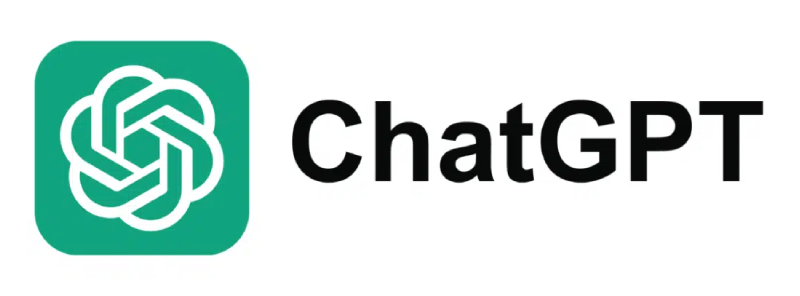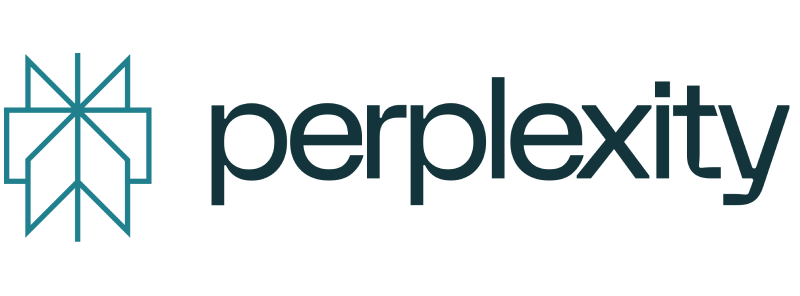Key takeaways
- Legal document generator software can significantly streamline the document creation process for legal professionals.
- Key features to consider when choosing legal document generator software include template libraries, clause management, automation capabilities, integration options, workflow management, and security.
- Popular legal document generator software options include Docupilot, Rally, HotDocs, Woodpecker, Clio Draft, Gavel, and Knackly.
If you are part of the legal world, you must be no alien to the mind-numbing mundaneness of creating and drafting accurate and compliant legal documents. Adhering to legal terminology, stringent formatting standards, and maintaining utmost accuracy - an arduous undertaking.
This is, particularly true when you’re juggling multiple responsibilities.
It is in these circumstances that legal document generator software offers a much-needed reprieve. These solutions automate and standardize the document creation, ensuring accuracy and compliance, and have become indispensable tools for law firms, corporate legal departments, and individual practitioners alike.
Today, many legal document generator software options are available in the market. It can be overwhelming to determine which software is the best fit for your specific needs.
To help you, we’ve reviewed some of the popular legal document generator software based on their features, pricing, and ease of use.
What is legal document generation software?
Legal document generator software, also known as document automation software or contract lifecycle management (CLM) software, is a solution designed to streamline and automate the process of creating, managing, and storing legal documents.
This software leverages features like pre-built templates, automation, artificial intelligence, and seamless integration capabilities to quickly generate a wide range of legally binding documents without errors and ensure compliance.
Instead, legal professionals can upload a template for a contract or a non-disclosure agreement (NDA). These templates can be easily customized to meet specific requirements, and once finalized, they can be used to generate similar documents in the future, saving valuable time and effort.
By adopting legal document generator software, law firms, and legal departments can deliver accurate and compliant documents while managing increasing workloads and tight deadlines. All this while, reducing costs and mitigating non-compliance risks.
What features your legal document generation software must have?
When selecting a legal document generation software, it's essential to consider features that enhance efficiency, accuracy, and compliance. Key functionalities to look for include:
1. Extensive template library
A strong platform should offer a wide selection of pre-built legal templates, NDAs, contracts, pleadings, and much more. This eliminates the need to start from scratch every time and ensures documents stay consistent.
2. Clause management
A centralized clause library is non-negotiable. You should be able to create, store, and reuse your firm’s preferred clauses, with version control baked in. That way, you don’t risk inconsistent language sneaking into client work.
3. Automation capabilities
Manual data entry is a law firm’s productivity killer. Good software should auto-populate fields using data from your CRM, databases, or case management system. This saves time and cuts down on human error.
4. Integration capabilities
The best tools play nice with the rest of your stack. Look for integrations with practice management systems, cloud storage, and e-signature platforms.
5. Workflow management
Legal documents usually touch multiple hands: attorneys, clients, paralegals, and partners. Built-in workflows for reviews, approvals, and signatures keep everything moving smoothly without endless email chains.
6. E-signature integration
Built-in e-signature options or integrations with tools like DocuSign and SignNow allow you to finalize documents quickly without printing.
7. Security and compliance
Sensitive legal docs can’t live on a flimsy system. Encryption, access controls, audit trails, and compliance with GDPR/CCPA (or regional standards) should be standard. Anything less is a liability.
8. Bulk document generation
The tool must be capable of generating hundreds of customized contracts or forms in a few clicks by merging template fields with client data. This can significantly reduce turnaround time.
9. AI template builder
AI-powered tools help you build templates faster and with fewer mistakes, making automation accessible even to non-tech users.
10. Automated document delivery
Features that automate the delivery of documents via email or cloud storage enhance efficiency and credibility.
11. Customizable workflows
The ability to tailor workflows to specific organizational needs ensures adaptability, and is one of the must-have features.
12. Audit trails
Keeping detailed logs of document edits and approvals aids in compliance and accountability.
Top Legal Document Generation Software: A Quick Overview
7 Best Legal Document Generation Software
1. Docupilot

Who is it for: For Lawyers who want an affordable document automation solution without sacrificing ease of use, integration, and security.
Docupilot is a comprehensive and affordable legal document generator software that’s known for its intuitive interface and advanced condition-based document generation capabilities.
With Docupilot, you can easily share documents with clients, or whoever needs access to those documents securely, and you decide who can see, edit, or manage the document through the access controls feature.
Docupilot integrates with the popular legal practice management software, Clio, allowing you to auto-populate document templates with client cases and data. And makes signing easy by integrating with your favorite signing tools, including Docusign, Signnow, and Yousign.
Key features:
- Intuitive template builder: A drag-and-drop builder that allows you to design dynamic templates without needing technical skills. Add conditional logic, images, barcodes, and tables to create professional, client-ready documents in minutes
- Centralized template library: Store, organize, and control access to all your templates with version tracking and role-based permissions. This ensures compliance and consistency across your entire practice
- Bulk document generation: Pull data from your CRM, Clio, or spreadsheets and generate hundreds of client-specific contracts in just a few clicks
- Smart integrations: With 70+ integrations (including Zapier, Google Drive, and DocuSign), Docupilot fits right into your legal workflow
- Automated document delivery: Instantly send documents via email, upload to cloud storage, or route for e-signatures, removing the need for manual handling
- Security and compliance: End-to-end encryption, GDPR/CCPA compliance, and detailed audit trails protect sensitive client information
Pros:
- Lawyers with non-tech backgrounds can easily learn and use it.
- Affordable pricing
- Offers various security measures including encryption, password protection, access control, and more
Pricing:
You can try Docupilot for free for 30 days. Pricing is credit-based; you spend one credit per document created or delivered. This provides a transparent way of tracking usage and managing costs. With six pricing tiers, there's a suitable plan for you, whether you're a solo practitioner or part of an established firm:

2. Rally

Who is it for: Law firms and legal service providers of all sizes.
Rally streamlines legal workflows for businesses and their lawyers with an intuitive interface. It combines document automation with comprehensive contract management in a single platform. The user-friendly design extends to their client portal, enabling seamless collaboration, e-signatures, and online payments. Rally offers a robust suite of features, including a template library and CRM integration. However, its pricing might be steeper than competitors focused solely on legal document generation.
Most important features and who it benefits:
- Customizable client portal: Personalized, user-friendly interface for client e-signatures and payments.
- Powerful search: Quickly locate any document, regardless of age or location.
- Smart client intake: Cloud-based forms and questionnaires to gather client information, feeding directly into the automation system.
- Extensive template library: Wide range of pre-made templates for various legal documents, including employment contracts, NDAs, and shareholder agreements.
- Organized document management: Easily categorize, store, and retrieve documents and associated contacts.
Pros:
- Ready-to-use, customizable templates
- A client-accessible platform for collaboration and self-service
- Integration capabilities
- Strong security features
Cons:
- No built-in Word editor or add-on, making template creation difficult
- Higher cost compared to competitors
- Less robust automation capabilities (i.e., lacking logic functions and certain field types)
Pricing
Rally offers a free trial and three pricing plans which include:

3. Woodpecker

Who is it for: Small to mid-sized law firms.
Woodpecker is known for its straightforward interface and minimal learning curve. This document generation software seamlessly integrates with existing legal practice management tools, making it an ideal choice for law firms looking for a seamless and efficient document automation tool.
It is a cloud-based legal drafting software that revolutionizes traditional document drafting by leveraging the power of automation.
Key features:
Effortless template creation: The dedicated MS Word add-in empowers users to build and customize templates with a point-and-click approach. Woodpecker allows for the reuse of elements like cards, fields, and logic chains from existing templates to expedite the creation of new ones.
Pre-built library: Gain access to a comprehensive library of up-to-date court forms spanning across multiple jurisdictions, all included for free.
Advanced customization: Woodpecker offers granular control over templates. Update pronouns, add or remove clauses, and adjust formatting to precisely tailor documents to each client's or case's specific needs.
Streamlined e-signatures: Woodpecker integrates e-signature functionalities, allowing both clients and legal professionals to sign documents electronically, accelerating the overall process.
Pros:
- Seamless Integration with Legal Practice Management Tools
- Efficient Template Creation through Element Reuse
- Low-Code Functionality for Easy Customization
Cons:
- Lacks Client-Facing Features
- No Guided Interviews Available
Pricing:
Woodpecker is charged based on seat and fillable court forms.
3. Hotdocs

Who is it for: Small to mid-sized law firms.
HotDocs, a veteran in the document automation industry since 1993, and caters to businesses of any size or type. According to their research, HotDocs is found in more than 60% of the law firms that use document generation software. The solution offers on-premise, cloud-based, and hybrid deployment options.
Key features
- Extensive integrations with business systems (BPMs, CRMs, ECMs, document/risk management)
- Template-based document assembly with client data input through interviews
- Customizable templates with conditional text areas
- Cloud-based solution with offline access capability
Pros:
- Long-standing reputation in the industry
- Wide range of integrations
- Comprehensive template customization options
Cons:
- Complex set up
- The user interface is not as intuitive as its competitors
Pricing
Available on request
4. ClioDraft

Who is it for: Clio Draft (formerly Lawyaw) caters to solo practitioners, and small and mid-sized legal practices seeking a user-friendly document automation solution.
Clio Draft is renowned for its intuitive interface and minimal learning curve. Acquired by Clio, a legal software powerhouse for client management, casework, and billing, Clio Draft seamlessly integrates with their existing platform This makes it ideal for law firms seeking a straightforward document automation tool within a familiar ecosystem.
It is a cloud-based legal drafting software that transforms traditional document drafting by leveraging the power of automation.
Key features:
- Effortless template creation: The dedicated MS Word add-in empowers users to build and customize templates with a point-and-click approach. Clio Draft even allows for the reuse of elements like cards, fields, and logic chains from existing templates to expedite the creation of new ones.
- Pre-built library: Gain access to a comprehensive library of up-to-date court forms spanning across 50 US states, all included for free.
- Advanced customization: Clio Draft offers granular control over templates. Update pronouns, add or remove clauses, and adjust formatting to precisely tailor documents to each client's or case's specific needs.
- Streamlined e-signatures: Clio Draft integrates e-signature functionalities, allowing both clients and legal professionals to sign documents electronically, accelerating the overall process.
Pros:
- Seamless Integration with Clio Manage
- Efficient Template Creation through Element Reuse
- Low-Code Functionality for Easy Customization
Cons:
- Lacks Client-Facing Features
- No Guided Interviews Available
Pricing:
Clio Draft is charged based on seat and fillable court forms.

5. Gavel

Who is it for: It was founded by lawyers and purpose-built for lawyers and offers a short learning curve.
Gavel.io, formerly known as Documate, is a powerful and user-friendly no-code document automation software. Its standout feature is a Microsoft Word add-on that enables non-programmers to easily create and automate documents from scratch. It has a Word plug-in that makes automating existing templates a breeze. The software's versatility is extended through its native integrations with Clio (a legal practice management system), e-signature tools like HelloSign, and Zapier for connecting with a wide range of other applications.
Key features:
- AI-assisted workflow creation: An AI tool called Blueprint suggests workflows based on specific rules, streamlining the onboarding process.
- Template uploading: Users can easily import and automate their existing document templates.
- Marketplace: Sell or access paid and free white-labeled document templates and workflows.
Pros:
- A secure portal for clients is available
- Customer service team is responsive.
Cons:
- No pre-built template library
Pricing:
Gavel offers a free trial with a three-tier pricing plan

6. Knackly

Who is it for: Attorneys who create complex documents, such as those for estate planning, family law, and loan creation.
Knackly is an emerging player in the legal document automation software market, steadily gaining traction among legal professionals. This versatile platform assists in creating and automating a wide array of legal documents, including Bills of sale, Business proposals, Financial declarations, Litigation letters, Promissory notes, Wills, Regulatory agreements, Powers of attorney (POA), various types of contracts and more.
What sets Knackly apart is its innovative approach to document creation. The software enables law firms to significantly speed up their document preparation process by allowing clients to input their information through user-friendly, step-by-step online forms. This data is then seamlessly integrated into the appropriate documents for each stage of the client's case, saving time and reducing errors.
For firms looking to streamline their workflow, Knackly offers native integration with three popular case management systems: Clio, Filevine, and Curo365.
Key features:
- Reusable information: Knackly allows users to reuse information more easily and quickly than other solutions.
- Guided interviews: Knackly automates document creation using client responses to guided interviews. Its Intake Builder feature intelligently selects relevant questions for each document, saving time and minimizing errors.
- Conditional logic: Users can incorporate conditional logic into templates to ensure that the right questions are asked based on the template's logic.
Pros:
- Exceptional customer service
- Low-code features
- Offers Zapier integration
Cons:
- Complex set-up - there’s a bit of a learning curve
- Lacks native word editor
Pricing:
Knackly’s base plan is $100/per month for up to 4 users.

Putting it all together
As we've explored in this comprehensive review, the legal document generator software market offers a variety of powerful tools to streamline your document creation process.
When choosing the right software for your needs, consider:
- Your specific document types and complexity
- The level of automation you require
- Integration capabilities with your existing systems
- Ease of use for both your team and clients
- Pricing structure and how it aligns with your budget
Remember, the best choice will depend on your individual practice or business needs. Take advantage of free trials when available to get hands-on experience with these tools.
Ultimately, investing in the right legal document generator can significantly boost your efficiency, reduce errors, and allow you to focus more on serving your clients.
Frequently Asked Questions(FAQs):
1. How can legal document generator software benefit my law practice?
These tools can save time, reduce errors, ensure consistency, and allow for easy customization of documents, ultimately improving efficiency and potentially reducing costs.
2. Are these software solutions secure enough for handling sensitive legal information?
Most legal document generators offer strong security measures such as encryption, access controls, secure data centers, and compliance certification. However, it's crucial to verify the specific security features and compliance certifications of any software you're considering.
3. How do I choose the right legal document generator for my needs?
Consider factors such as the types of documents you frequently create, automation capabilities, integration with your existing systems, ease of use, customization options, and pricing. It's often helpful to try demos or free trials before making a decision.




















